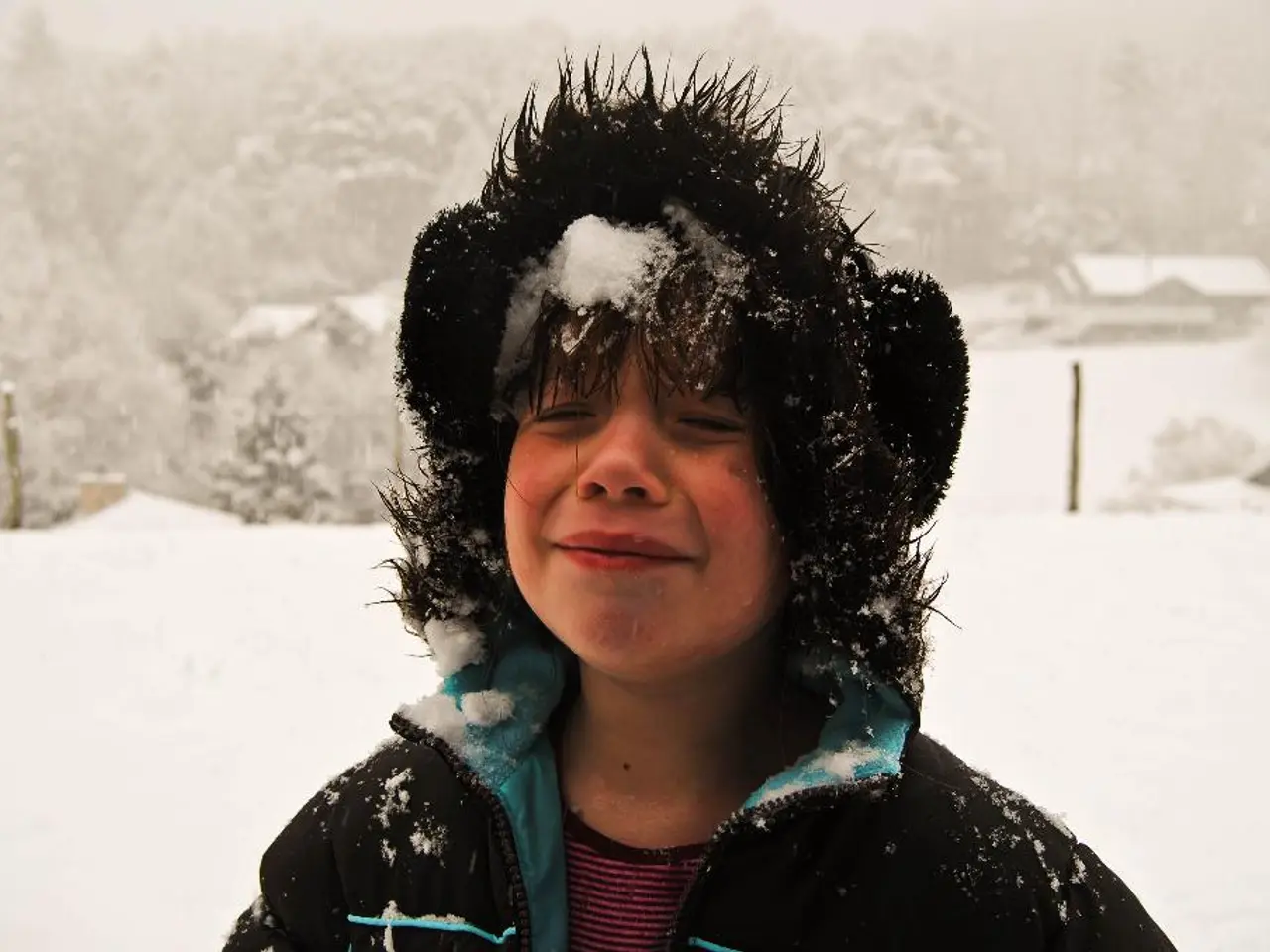Guidelines for Preserving Mental Well-being in Yourself and Your Children Post-Natural Catastrophe
Natural disasters such as hurricanes, earthquakes, wildfires, floods, blizzards, and tsunamis can have a profound impact on mental health. It's crucial to be aware of the potential emotional and psychological effects, especially for those with pre-existing mental health conditions.
Anxiety and depression may arise, even in those who have never experienced them before. Children are particularly vulnerable, especially if they have witnessed frightening events, lost loved ones, or experienced trauma following the disaster.
Strong emotional reactions to tragic events are normal. Nightmares are possible after a disaster, and doomscrolling and negative reinforcement can be triggered by constant exposure to images of death and destruction.
Parents should talk to their children about traumatic events in a calm manner and answer their questions. Turning fear into knowledge through activities like science projects, helping others, and creating emergency preparedness plans can help children feel more in control.
Creating a self-soothing kit for children can help them manage anxiety. The kit might include comfort items like a favourite toy, a blanket, or a photo of loved ones. Limiting exposure to images of death and destruction can help reduce stress and anxiety.
Adults should also take care of their mental health. Checking in with loved ones and oneself for signs of anxiety, depression, and PTSD is crucial. Staying active, such as volunteering, can help regain a sense of control. Preserving routine helps provide a sense of safety and control. Focusing on the basics like eating, sleeping, and taking medication can lower stress and anxiety.
If you're unable to help in person, offering to do errands, make calls, and send food can be helpful. Being honest with children about natural disasters and offering age-appropriate answers is recommended. Acknowledging children's feelings and reassuring them of safety and well-being is beneficial. Encouraging conversations with children about their feelings is important.
The Substance Abuse and Mental Health Services Administration (SAMHSA) provides free telephone support in the United States for psychological distress during natural disasters through its Disaster Distress Helpline. In the US, resources for help also include the 211 Network.
It's important to be cautious about what is shared on social media during natural disasters. Survivor's guilt or shame about one's circumstances is common. Conflicting feelings like fear and excitement, gratitude and contempt, can occur without warning. Talking about feelings can help relieve stress and anxiety.
Psychologist Susan Albers, PsyD, shares tips for navigating the aftermath of natural disasters. Tips include getting help, talking about feelings, focusing on the basics, preserving routine, and staying busy. Checking on neighbours and helping with debris, food, and water distribution can be beneficial.
Remember, it's okay to seek help. If you or someone you know is struggling, reach out to the Disaster Distress Helpline or other local resources. Together, we can support each other through the challenges of natural disasters.
Read also:
- Transforming Spaces for Fresh Air: The Role of Architecture and Interior Design in Promoting Healthier Environments
- Deer in Canada are being eradicated by a "zombie-like illness", posing a threat to hunters
- Applications for the 2026 HRCIF program will become available shortly
- Cholera's Origins and Transmission Explored






